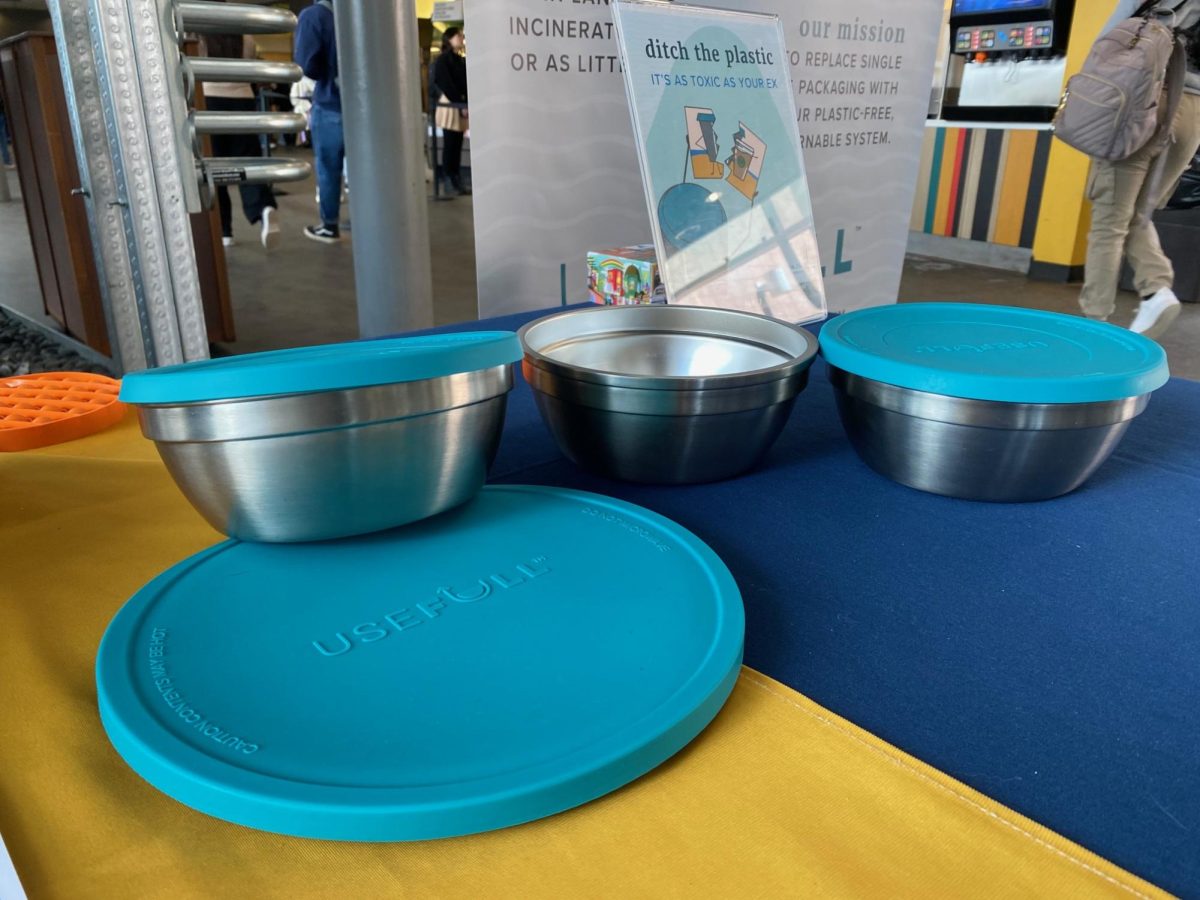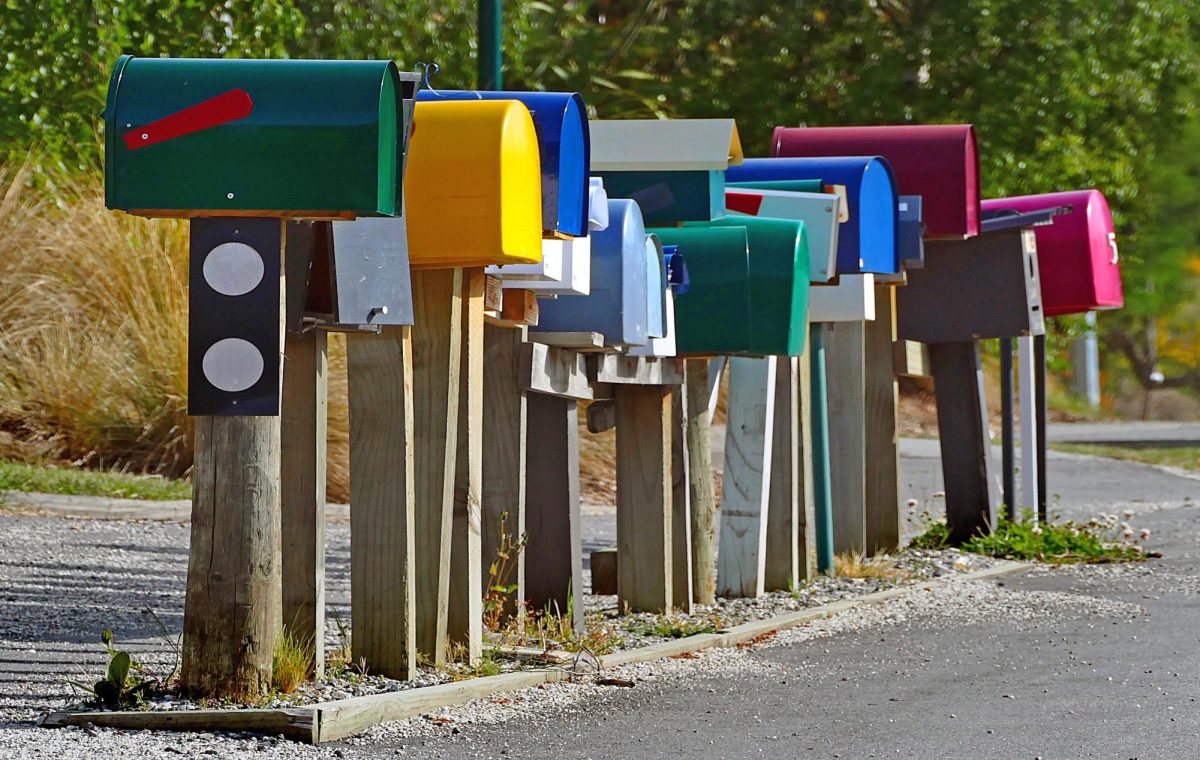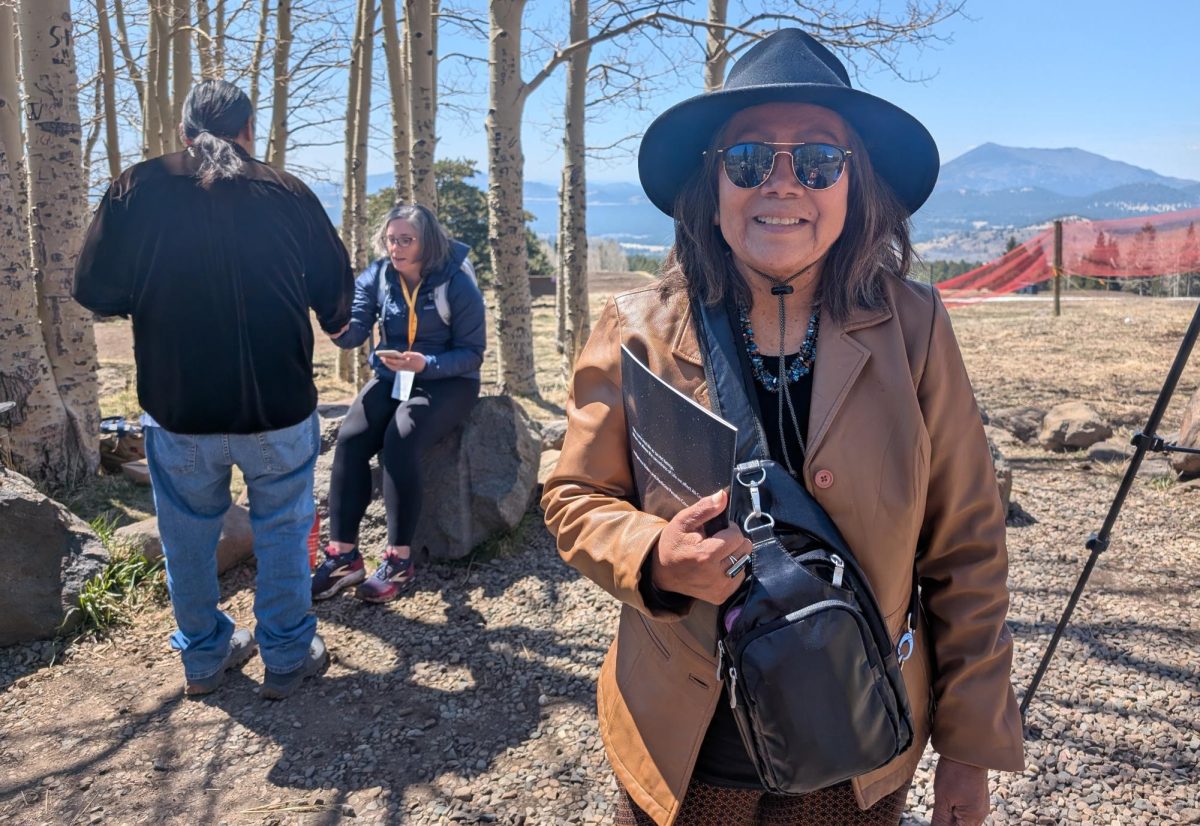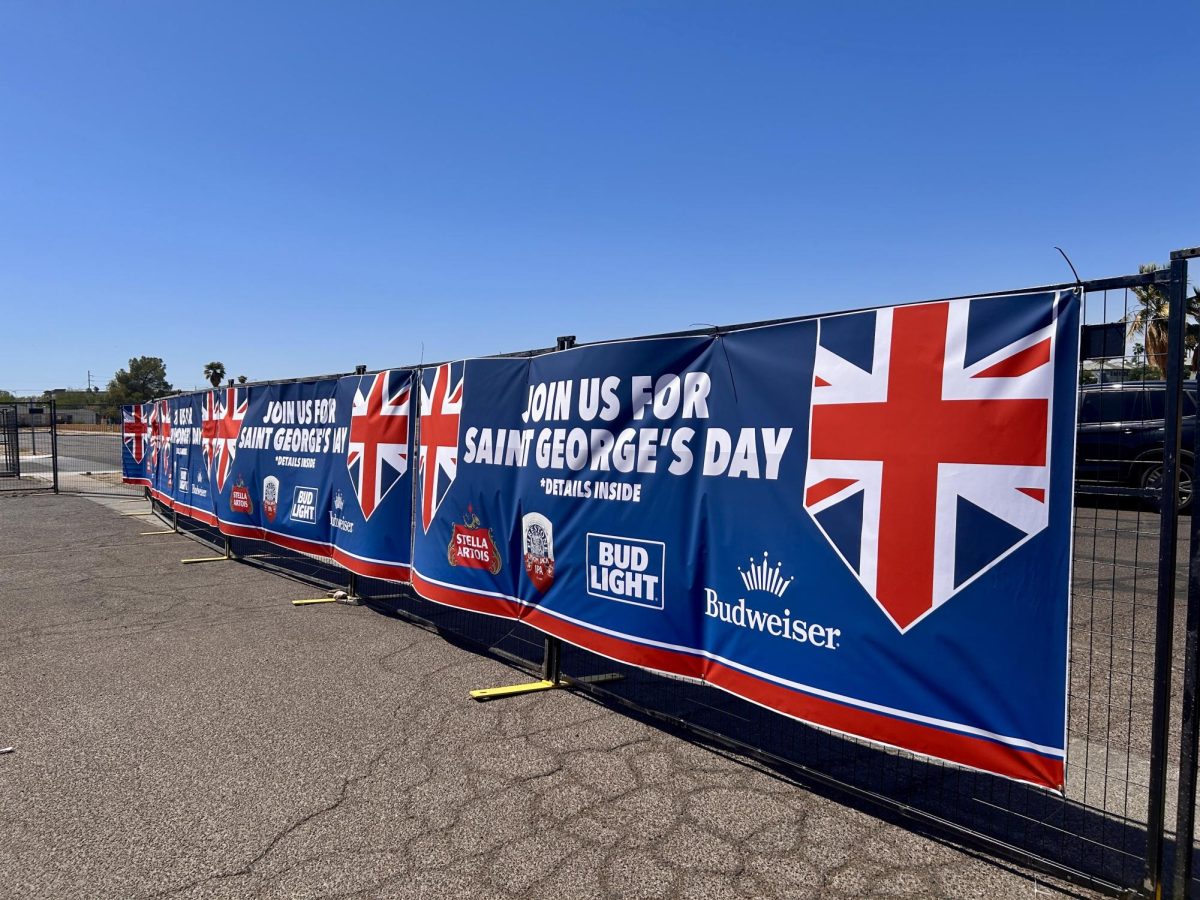Northern Arizona University recently introduced the USEFULL program as part of their goal to be carbon neutral by 2030.
The stainless-steel dishes are mandatory for students at three, on-campus dining locations, Lemon Grass Kitchen, Turnip the Greens, and Cobrizo Mexican Grill—making NAU the first higher college campus in Arizona to implement a technology-based reusable container system.
The program is being funded through NAU’s Green Fund, which is the university’s main source for sustainability funding.
“We were approached by a member of campus dining with the idea to fund USEFULL, and we were really interested in this idea just because it felt like a real opportunity to replace the plastic waste on campus,” said Maxwell Sewell, co-chair of the Green Fund. “Originally, we had a system called O2Go that was plastic containers that was not mandatory at any restaurants, and this led to the process essentially never being used. We feel that implementing a system where students will be required to use these reusable containers will truly eliminate that waste since it’s no longer going to be an issue where they have the choice to go waste free or not.”
According to the USEFULL website, NAU is projected to keep more than 40 tons of carbon dioxide out of the atmosphere and divert more than 24,000 pounds of waste from landfills.
Partnerships lead Katherine Woolford, talked about the impact of the program.
“NAU is bringing on the USEFULL program for their zero-waste dining initiative—both with NAU dining and Sodexo team (NAU’s food services and facilities management provider) for their 2030 sustainability goals. The reason we’re doing this, is in order to keep trash out of the landfill, and the expectation is 175,000 containers will be kept out of the landfill with this initiative this year,” Woolford said.
The USEFULL process requires students to download the USEFULL app, select their school, and then connect a method of payment for late fees if you do not return your dishes to a machine within the designated 48 hours. When paying for the food, the employee will have you scan the QR code on the bottom of the dish and drinking cup, and when returning the dish to the machine, the user will scan the same QR code before setting your dishes in the opening. After submitting the scanned codes, the user will be sent a notification confirming that the dishes were returned.
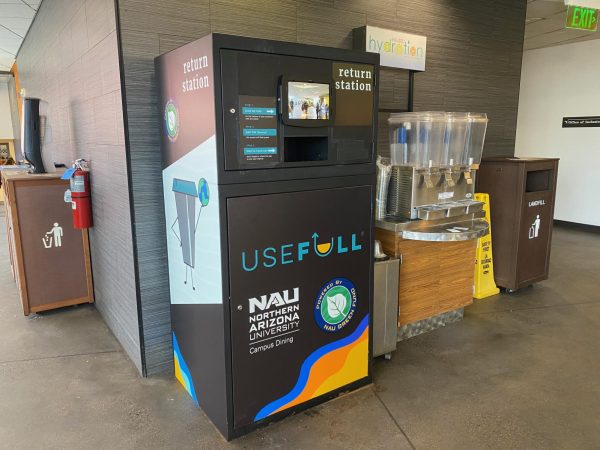
According to United States Environmental Protection Agency’s Guide for
Food Services and Restaurants, “Packaging and containers account for a significant portion (23%) of the municipal solid waste stream in the United States, equal to about 39 million tons per year.”
Karlie Hayes, USEFULL’s data analyst and communications coordinator stressed that the program is practical and free for students to participate.
“USEFULL’s a great program because it makes sustainability convenient and accessible for everyone. It’s completely free to students and students just check out a container like they would check out a library book.”
In addition to NAU, USEFULL has also partnered with University of Southern California, Good Earth Natural Foods, Island Eats, and others.


